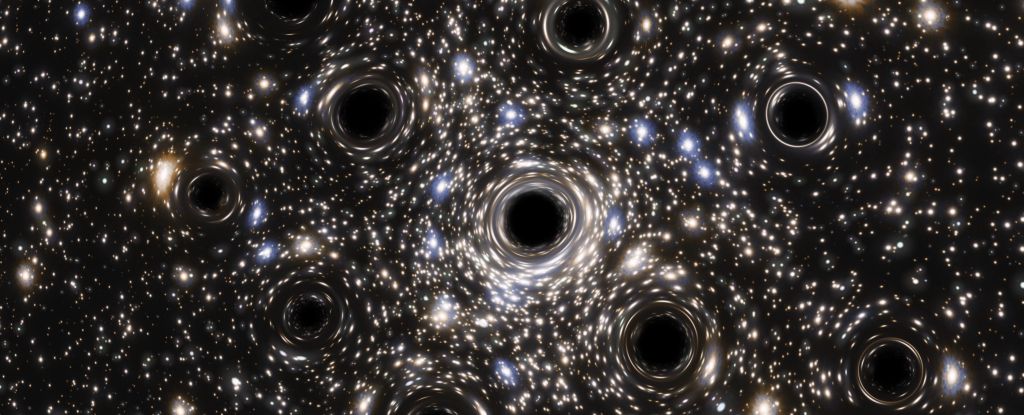The concept of black holes invokes a sense of terror and dread. They are perceived as inescapable, devouring everything and allowing nothing to escape. However, the accuracy of these beliefs is debatable, and a pair of physicists has devised a calculation to demonstrate how black holes could be used as a source of power. According to Zhan-Feng Mai and Run-Qiu Yang of Tianjin University in China, small black holes could theoretically function as rechargeable batteries and nuclear reactors, providing energy on the scale of gigaelectronvolts.
Interestingly, the energy extracted doesn’t come from within the black hole, but just outside it— the strongest known concentration of gravity in the Universe. Our Universe is suspected to be dotted with black holes, although they are not always easily detectable. These mysterious objects range in mass from about five times the mass of the Sun to tens of billions of solar masses. However, there’s another class of black holes theoretically known as primordial black holes that can be extremely small, down to subatomic sizes.
While stellar mass black holes form from the collapsed cores of massive dead stars, primordial black holes are believed to have originated from overdensities in the primordial plasma that filled the Universe after the Big Bang. The existence of primordial black holes remains uncertain, but it opens up numerous possibilities, including a potential candidate for dark matter.
Now, it seems that we might be able to utilize these hypothetical dimples in space-time in some way. Mai and Yang argue that a tiny black hole could theoretically function as a battery that converts non-electrical energy into electrical energy, as well as harness the power of nuclear reactions to produce energy.
They write in their paper that “Taking the fact that the black hole has extremely strong gravitational force, an interesting question arises: considering at least theoretically, could we use the gravitational force of black holes to generate electric energy, i.e. make use of black holes as batteries?” They further argue that a Schwarzschild black hole can be used as a rechargeable battery.
However, a problem with very small black holes is Hawking radiation, which is mass lost by a black hole due to the interaction between the black hole’s event horizon and the quantum fields in its vicinity. The smaller the black hole, the faster mass is lost, and if the black hole is small enough, it will evaporate relatively quickly. This also makes it difficult to extract anything from the space around it.
Mai and Yang determined that a primordial black hole above a certain mass can be replenished and recharged to produce electrical energy. They calculated that an atom-sized black hole with a mass ranging from 1015 to 1018 kilograms should be able to produce this energy when replenished with charged particles and can convert 25 percent of the input mass to energy, presenting an efficiency rate higher than most commercially available solar panels.
They further noted in their research that a black hole could obtain a similar efficiency as a nuclear reactor and convert 25 percent of the mass of an alpha particle to kinetic energy. While harnessing a primordial black hole remains a theoretical concept, it opens up an intriguing possibility, particularly in relation to dark matter and the potential to harness this mysterious form of matter to power our technology.
The research is set to be published in Physical Review D, and can be accessed through arXiv.


